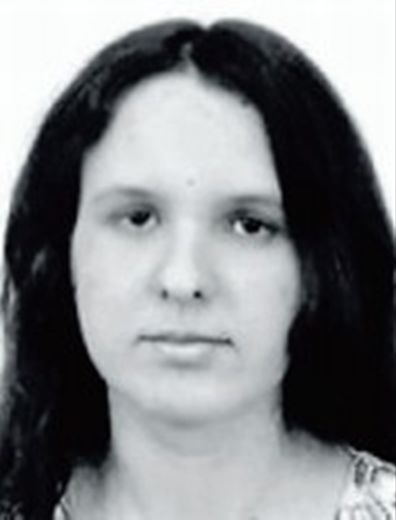
Strange Case of Suspected Lithuanian Suicide Bomber Complicated by Alleged Role of Security Services
Publication: Terrorism Monitor Volume: 8 Issue: 35
By:

Buried in this year’s Europol report on terrorism trends was a reference to “a 20 year-old Lithuanian woman” who was “arrested before she traveled to Russia to commit a suicide attack there. She had converted to Islam and was self-radicalized via the internet” (for the report, see Terrorism Monitor, June 4). [1] This rather conclusive narrative provided to Europol by Lithuania’s security forces was seemingly contradicted in early August when the suspect, Egle Kusaite, was released from custody by a court of appeals pending a trial whose date has not yet been set (Baltic News Service, August 6).
The strange case of Egle Kusaite first came to public attention in late April/early May 2010 when security forces were obliged to reveal information about her in open court after nearly six months in custody (AP, May 4). Having admitted that she was in custody, prosecutor Justas Laucius told the court that “Egle Kusaite performed illegal actions, and was likely ordered by someone to go to Russia and blow herself up at a military object” (AP, May 4). Laucius later defined the target as “a strategic site,” namely “a military barracks holding Russian troops who had fought in Chechnya” (Kauno Diena (Kaunas), July 20).
Arrested on October 29, 2009 as she tried to board a plane with a new passport, a one-way ticket and $500 she had obtained from radicals for the trip, Kusaite was picked up as part of an intelligence-led operation and has been in Vilnius’ Lukiskes Prison ever since (Baltic News Service, June 11; Baltic Times, July 28). According to the Russian press, Kusaite had been on Lithuanian security’s radar for some time as a result of “anti-Russian messages” she had been posting online (RussiaToday, May 4). Kusaite had repeatedly applied for visas to enter Russia, and was in online contact with extremists in Azerbaijan, the United Kingdom and Uzbekistan as well as a cell in Russia (Baltic News Service, May 4). She had also downloaded manuals about making explosives, which were found in her possession alongside maps of the Moscow underground system as she attempted to board the plane to Russia.
In 2007, the then 18 year-old Kusaite had been reported missing by her family. According to a former teacher, she had developed a close relationship with a man from the North Caucasus, whom she later married in Germany (AP, May 4; Kavkazcenter.com, May 4). Her husband apparently returned to Chechnya and was killed in the fighting, allegedly providing Kusaite with personal motivation to become involved in the conflict (Baltic News Service, August 5). Kusaite’s mother, Virginija Kusiene, claimed she had been obsessed with Chechens, conversing with individuals online before running away to Germany where she had lived in a Chechen couple’s flat “in a room without windows and furniture except for a dirty mattress where she would spend entire days” (Baltic Report, August 6). According to the suspect’s mother, Kusaite lived in her home town of Klaipeda in a flat rented by the Lithuanian State Security Department after her return from Germany and associated with Muslim fundamentalists who were, in reality, agents of the security service (Baltic Times, July 28).
Having been detained by security forces, Kusaite confessed in June “that her goal was to go to Russia and then Chechnya, were she would have performed a suicide bombing in a public area.” It was also revealed that a Chechen brother and sister detained in Russia had admitted to providing her with guidance, offering training and sending her the $500 required for the trip to Russia (Baltic News Service, June 11). The mother of the two Russians admitted the three were in touch, but suggested that Kusaite and her daughter talked only of “girly things” during their internet conversation (Baltic News Service, July 19). On the other hand Kusaite’s family denied her confession altogether, declaring that it had been forced – something she herself now claims (Baltic News Service, August 5).
This is not the only inconsistency with the case, which has stirred up a fierce internal debate in Lithuania about its counterterrorism policy. When the case was first announced, Russian forces denied all knowledge of it, though it had been simultaneously reported that individuals in Russia had been detained and that the arrest was a joint Lithuanian-Russian operation (Interfax, May 5; AP, May 4). Lithuanian forces also claimed to have connived with the Russian Embassy to have Kusaite’s visa application rejected in an attempt to prevent her from going to Russia, suggesting some level of prior contact with Russian authorities (Baltic News Service, June 10).
Lithuanian human rights activists including European Parliament MP Darius Kuolys have even suggested State Security Department operatives tried to convince Kusaite to undertake a suicide bombing in Egypt (Baltic Times, July 28). The activists also claimed that Kusaite had been in the security services thrall for around two years, apparently working as some sort of agent for them. This was confirmed by Lithuanian press sources contacted by Terrorism Monitor who suggested that the case has been complicated by the fact that she had worked in some capacity for the security services. Her family claimed that she had undergone physical and psychological abuse while in custody and that Russian agents had been involved in beating her while in Lithuanian custody, a charge the suspect later repeated in court (Baltic News Service, June 22; Baltic Times, July 28). On the way to her July 20 court appearance, Kusaite shouted to journalists, “I was beaten by three Russians!” (15min.lt [Lithuania], July 26). An investigation into the charges determined the Russians had acted only as observers during the interrogation.
The Kusaite case comes in the wake of a separate case in which it is claimed a Lithuanian agent had attempted to gain information on a Chechen family suspected of radical activity through their foster daughter, whom he had gotten pregnant and then forced to plant listening devices (Baltic News Service, May 12).
Amidst claims that the prosecutor in Kusaite’s case had intimidated the defendant, the court gave way to public and political pressure and dismissed the lead prosecutor (Baltic News Service, July 22). Just over two weeks later the decision was made to allow Ms. Kusaite to leave prison pending her trial, though her documents were seized and she is obliged to report regularly to a police station (Baltic News Service, August 6). It is currently unclear when her trial will be held, though a decision is expected imminently. However, given her alleged involvement with the security services and the fact that she was effectively held in secret detention for approximately six months, a conviction is far from a foregone conclusion. In the meantime, the case highlights the ongoing anxiety that exists among European security services regarding the potential for the North Caucasus to act as a drawing force for aspiring young jihadis.
Note:
1. TE-SAT 2010: EU Terrorism Situation and Trend Report, April 28, 2010, available at: https://www.europol.europa.eu/publications/EU_Terrorism_Situation_and_Trend_Report_TE-SAT/TESAT2010.pdf, p.15.





